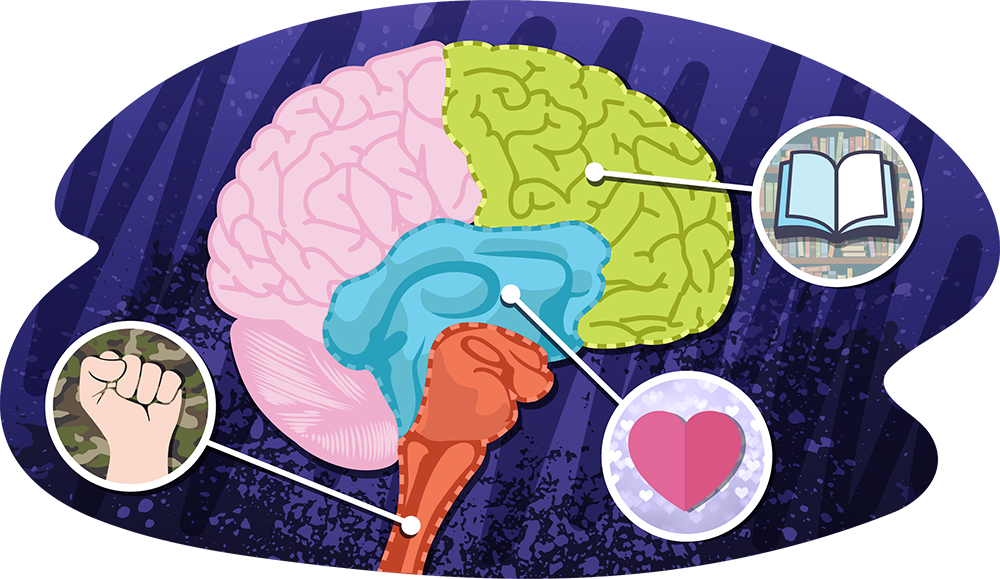Why am I anxious?
To work out why you're feeling anxious, it can be really helpful ...
READ METhe brain is very complex! But let’s simplify things a bit, to help you understand what happens in your brain when you’re anxious or stressed.

The Survival Brain
Your heart rate
Your breath
Your body temperature
Your sleep/wake cycle
Your movement
The Emotional Brain
The Smart Brain
Communication processing – reading, writing, talking & listening
Critical thinking
Problem solving
“When our brain thinks we are in danger, it responds to help us stay safe. This is called our fight/flight/freeze response. The good news is, once you are safe and calm down, everything in your brain returns to normal.”
– Amanda, Kids Helpline Counsellor
If you want to learn more about anxiety and how to deal with it, give us a call, start a WebChat or send us an email today.
If you need more information for other digital services and resources, check out Head to Health.
Why am I anxious?
To work out why you're feeling anxious, it can be really helpful ...
READ MEWhy do I freak out when I’m stressed?
To work out why you're feeling anxious, it can be really helpful ...
READ MEHow to manage anxiety
Anxiety can feel overwhelming, but there are some simple steps you can ...
READ MEAnxiety disorders
Most people have experienced anxiety, but not everybody has an anxiety disorder. ...
READ METalking helps! We’re here for you.
No problem is too big or too small.
We're here 24 hours a day, 7 days a week